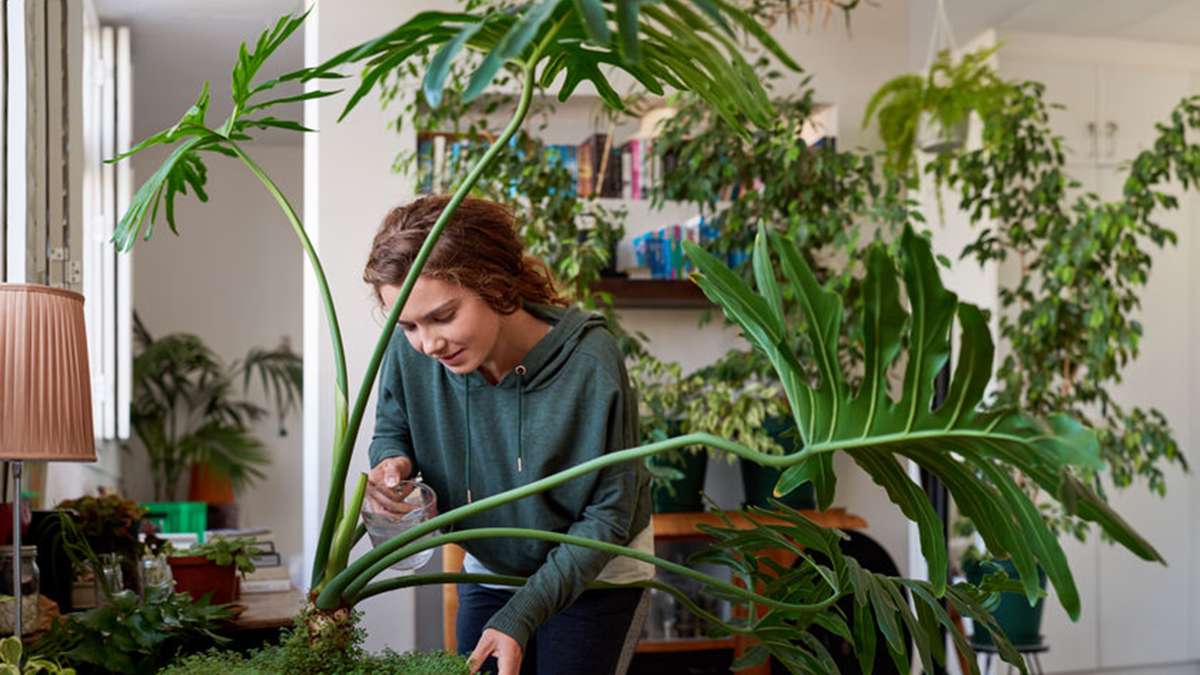
What Are the Benefits of Having More Plants in Your Life?
In recent years, the popularity of indoor plants has soared, and for good reason.
From houseplants to garden greenery, the presence of plants in our homes, workplaces, and urban spaces offers a multitude of benefits—both physical and psychological.
In this article, we explore why incorporating more plants into your life can improve your well-being, productivity, and even the environment.
1. Improved Air Quality
One of the most well-known benefits of plants is their ability to improve air quality.
Plants naturally absorb carbon dioxide and release oxygen, helping to maintain the balance of gases in the atmosphere.
Some plants, such as peace lilies, spider plants, and snake plants, also have the added bonus of removing toxins from the air, including formaldehyde, benzene, and trichloroethylene.
By increasing the oxygen levels and reducing harmful airborne chemicals, plants can create a healthier indoor environment.
This is especially beneficial in areas with poor ventilation or in spaces that are heavily climate-controlled, where air quality can often deteriorate.
2. Stress Reduction and Mental Well-being
Studies have consistently shown that spending time around plants can help reduce stress and promote mental well-being.
The presence of greenery in your environment has been linked to lower levels of cortisol, the stress hormone.
One study found that patients recovering from surgery in rooms with plants showed less anxiety and a faster recovery time.
Incorporating plants into your daily life can foster a sense of calm and tranquility. Gardening itself can be a mindful activity, offering a therapeutic outlet for creativity and relaxation.
The act of caring for plants, whether it’s watering, pruning, or simply observing their growth, can also provide a sense of accomplishment and routine, which can be especially beneficial for mental health.
3. Enhanced Productivity and Focus
Adding plants to your workspace or study area has been shown to enhance productivity and focus.
A study from the University of Michigan revealed that people who worked in environments with plants performed better on cognitive tasks than those in plant-free settings.
The natural beauty of plants can improve concentration and make tasks feel less tedious, leading to higher levels of productivity.
In fact, many workplaces have started to integrate greenery into their office designs to boost employee satisfaction and efficiency.
Plants create a more pleasant and stimulating environment, which can help combat the mental fatigue that often comes from long hours of work.
4. Increased Humidity
Plants can help regulate the humidity levels in your home or office, which is especially important in areas with dry climates or during the winter months when heating systems can dehydrate the air.
Through a process called transpiration, plants release moisture into the air, naturally increasing humidity.
This can help prevent dry skin, irritated eyes, and respiratory issues, while also reducing the likelihood of dry indoor air that may cause discomfort or exacerbate conditions like asthma.
5. Connection to Nature
In today’s fast-paced, technology-driven world, it’s easy to become disconnected from nature. Having plants in your environment offers a simple way to reconnect with the natural world.
Whether you’re tending to your garden, observing the growth of your indoor plants, or simply taking a moment to appreciate their beauty, plants provide a grounding and calming influence.
Studies suggest that this connection to nature—also known as “biophilia”—can have profound benefits for our emotional and cognitive well-being.
Natural environments have been found to boost creativity, reduce mental fatigue, and promote a sense of overall happiness.
6. Better Sleep
Plants can also play a role in improving sleep quality.
Research suggests that certain plants, such as lavender, jasmine, and aloe vera, may have calming effects that promote relaxation and better sleep.
Lavender, in particular, has been shown to reduce heart rate and lower stress levels, which can help ease the transition into sleep.
Even the act of having a plant near your bed can have psychological benefits.
Simply looking at greenery before bed can signal your body to relax, creating a peaceful environment that is conducive to rest.
7. Boosts Creativity and Inspiration
Being around plants has been linked to increased creativity and problem-solving abilities.
This is why many artists, writers, and designers keep plants in their studios or offices.
The presence of greenery can stimulate the brain, help spark new ideas, and create an environment that fosters creative thinking.
Plants, with their natural forms and vibrant colors, have the ability to shift your mindset and encourage innovative thinking.
Whether you’re brainstorming, writing, or working on a project, having plants nearby can provide subtle inspiration and a fresh perspective.
8. Promotes Sustainability
By bringing more plants into your life, you contribute to environmental sustainability.
Plants help combat climate change by absorbing carbon dioxide and releasing oxygen, which is crucial in the fight against global warming.
Moreover, cultivating plants—whether it’s a small herb garden on your windowsill or a vegetable garden in your backyard—can reduce your reliance on store-bought produce, lowering your carbon footprint and promoting a more sustainable lifestyle.
Indoor plants also help improve the energy efficiency of your home by regulating temperature and humidity, potentially lowering the need for air conditioning or heating.
This can reduce energy consumption and contribute to lower utility bills, further supporting environmental conservation efforts.
9. Aesthetic and Emotional Appeal
The beauty of plants can enhance any space, creating a sense of harmony and balance.
Whether it’s the vibrant greenery of a monstera plant, the delicate flowers of an orchid, or the cascading vines of a pothos, plants add a touch of life and color to any room.
They can transform an otherwise bland or sterile environment into a vibrant, inviting space that makes you feel more at home.
Moreover, plants can also evoke positive emotions, serving as a reminder of the natural world and the cycles of life.
This connection to growth and renewal can be uplifting and inspiring, fostering a greater sense of contentment in your living or working space.

Conclusion
From purifying the air and reducing stress to boosting creativity and promoting sustainability, the benefits of having more plants in your life are numerous and wide-reaching.
Whether you’re a seasoned gardener or a beginner looking to add a few houseplants to your home, the positive effects of greenery are clear.
By integrating more plants into your daily routine, you can improve your physical health, mental well-being, and overall quality of life.
So, take a step toward a greener future—one plant at a time.

Leave a Reply